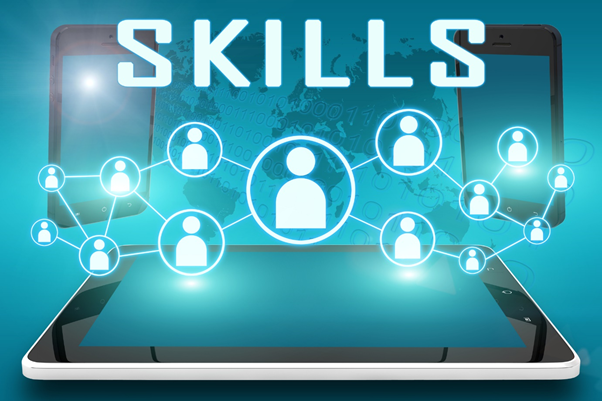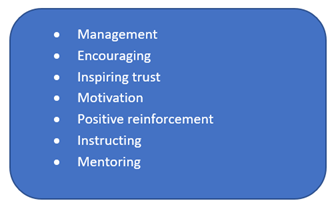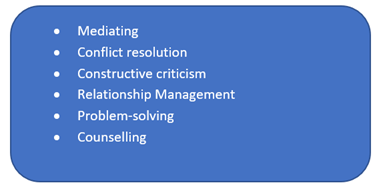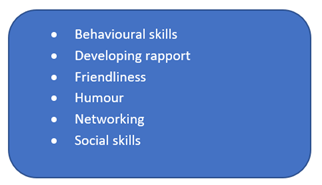What are interpersonal skills?
Interpersonal skills are the abilities necessary to communicate, engage, and work effectively with organisations and individuals. Those with excellent interpersonal skills are great communicators, both nonverbally and verbally, and are frequently seen as friendly to people. Those traits are necessary for success in both personal and professional lives.
In the workplace, "interpersonal skills" refers to a person's ability to collaborate efficiently with others. Listening and communication skills, as well as behaviour and attitude, are all instances of interpersonal skills.
Interpersonal skills, also referred to as soft skills, people skills, or emotional intelligence, are related to how one interacts and communicates with others.
One of the most key traits that employers look for when new employees are hired is interpersonal skills. It is crucial to get along with managers, co-workers, suppliers and consumers irrespective of the nature of the job you have.
In today's job, excellent interpersonal skills are essential for success. Thus, employability skills are also sometimes referred to as interpersonal skills. They're so crucial that hiring managers don't want to hire candidates without them.
Many professions necessitate regular, if not constant, interaction with others. This is also true for jobs that appear to favour introverted personalities and self-directed work methods. Even if you're a statistician, software engineer, or writer, you must communicate and collaborate with the rest of the team.
Social intelligence is a term used to define interpersonal skills. Everyone has their unique and interpersonal style, yet some people have had more tremendous success than others. Therefore, interpersonal skills could be developed or inherited, depending on one's personality and nature.
However, the great bulk of our daily activities necessitate communication with other people. Therefore, it's crucial to get along with other people to prosper in your profession or have meaningful friendships.
Summary
- Interpersonal skills are the abilities necessary to communicate, engage, and work effectively with organisations and individuals.
- In the workplace, "interpersonal skills" refers to a person's ability to collaborate efficiently with others.
- Interpersonal skills, also referred to as soft skills, people skills, or emotional intelligence, are related to how one interacts and communicates with others.
Frequently Asked Questions (FAQs)
What can you do to boost your interpersonal skills?
The following is a list of some of the most effective ways to boost interpersonal skills.
- Pay attention to your body language and make sure you're not doing anything that creates the impression you're distant and aggressive, such as crossing arms, looking around, ignoring eye contact and so on.
- Give the impression of being self-assured and approachable.
- Try to be courteous and friendly to your co-workers.
- When dealing with others, be committed, and dedicated.
- Practice presiding over a meeting or giving a presentation.

Source: © Mazirama | Megapixl.com
What are the various types of interpersonal skills?
Self-confidence
In the workplace, having a high level of self-confidence could open doors and assist in making an excellent first impression. It could also reveal how one tackles different situations and deal with them properly and efficiently.
Whether you are a fresh graduate hunting for your first job or a seasoned team member hoping to progress, it's crucial to exhibit self-confidence at every stage of your career path.
Communication
Communication is one of the most vital interpersonal skills in any profession. Whether in customer service or IT, one must communicate effectively with others. A few professions also necessitate public speaking abilities.
Work Ethic
It could be divided into three separate elements.
- Dependability– Employers must be confident that they can rely on their workers. If you're always on time, well-trained, and deliver work when you say you would, it shows that you have a good work ethic and are committed to the organisation.
- Professionalism– It features anything from how you introduce yourself to your appearance and how you treat other people.
- Respect– Workplaces necessitate that you operate under duress at some time, and exhibiting mercy when under duress earns you growing acceptance. It's always best to retain diplomacy and poise, no matter how close the deadline or how heated the situation could become.
Leadership
A specific level of managerial expertise and abilities is necessary. In addition, leadership necessitates the ability to inspire and motivate others and assist a team in achieving success.

Source: Copyright © 2021 Kalkine Media
Body Language
At work, body language and gestures are crucially significant.
The following are the factors that must be made when engaging with others.
Source: Copyright © 2021 Kalkine Media
Conflict Management
You may need to deal with conflicts as a staff or as a manager at some time throughout your career. This could entail resolving a conflict between you and a co-worker or the client and your firm. To reach a solution, it is necessary to listen to both parties fairly and solve problems creatively.

Source: Copyright © 2021 Kalkine Media
It's one thing to develop efficient relationships; it's another to maintain them. As a result, this is a crucial talent in various positions, from entry-level to management.
You are expected to collaborate with colleagues, consumers, and partners at all levels of the organisation. Within such a business environment, managing relationships based on mutual respect and mutual trust is critical.
Positive Attitude
Firms looking to hire workers who can enhance the aesthetics of the workplace. They do want folks who are cheerful and upbeat. This does not mean you have to be the most outgoing person in the firm, but you must be eager to build healthy relationships with your co-workers.
Applicants and workers with a positive attitude are considerably more likely to land a job and be well-liked within the firm.

Source: Copyright © 2021 Kalkine Media
 Please wait processing your request...
Please wait processing your request...